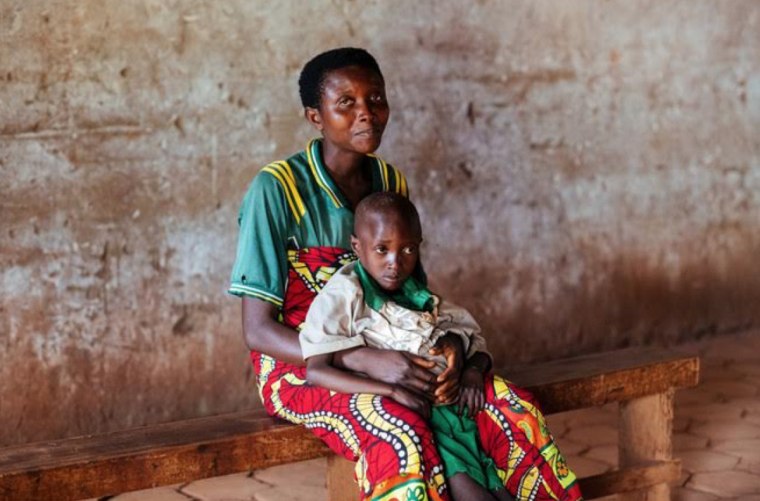Burundi facing mass malnutrition as Tearfund launches emergency appeal
More than half the population of Burundi are severely malnourished, the World Food Programme is warning, as a Christian charity launches an emergency appeal for donations.
Tearfund has worked in Burundi for more 30 years and over the last three 113,000 have fled mounting violence. Those left, who are mainly women, are living under the constant threat of violence, the charity said.

A combination of 15 years of civil war since 1993 as well as 'extreme poverty, a fragile political process and recurrent climatic shocks', have devastated the country's nutritional supplies, the World Food Programme (WPF) said.
Only 28 per cent of the population have a sufficient, nutritious diet all year round and as many as 58 per cent are chronically malnourished, according to the WPF. Rapid population growth combined with dramatically falling agricultural production has meant the average food made per head amounts to 1,472 kilocalories per day, well below the recommended minimum requirement of 2,100.
Tearfund has 36 malnutrition centres around the country and is urging Brits to donate from Friday onwards.
Angelique, a mother of two in Burundi, bought her youngest son David to one clinic with an arm cirucmfernce of 11.5 cm, well below the 'danger zone' of 13 cm.
'The biggest challenge is providing food for the children,' she said.
'When there is no food, when you have nothing, life is hard. We grow very thin and lose the strength to work. When we can eat, we eat maize bread and cassava leaves. This is not good, as we cannot vary our diet. We don't get the right nutrients. We eat at night and usually only once a day. When my husband was here, we could help one another and earn a little more. But alone, I am too weak.'

Tearfund's Country Manager in Burundi, Desire Majambere, said: 'The situation seems bleak but we must not turn our backs on Burundi. I have seen mothers begging for food for their children. The feeding centres go beyond providing food, they provide dignity. Mothers show me the colour of their children's hair - after feeding, it is no longer discoloured by malnutrition. Children are back in school and are playing again.Mothers are now proud of the health of their children, they no longer feel ashamed. They hold their heads high with confidence. There is hope.'
'Despite our struggles, we are still people - people who like dancing, playing volleyball by the lakes, laughing with our friends. But things are different now. Burundians are courageous and hardworking, they just need support to make the future brighter.'











